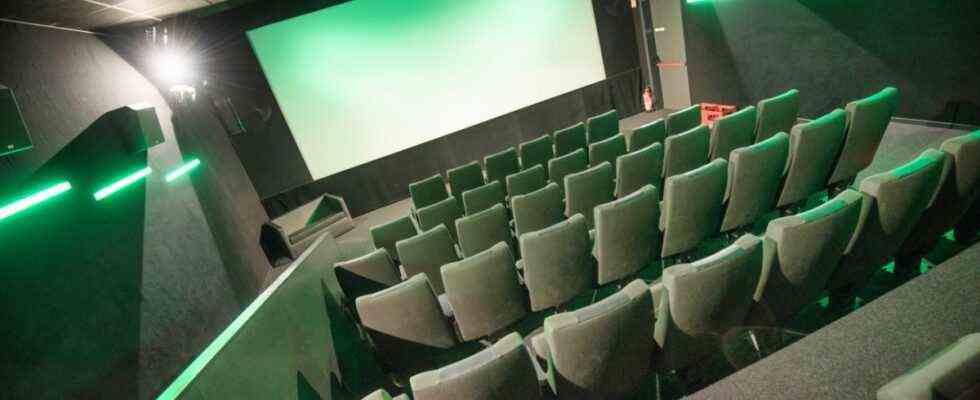Now it’s hitting her again. When almost the whole country shut down in March of last year, the theaters and cinemas were among the last to be allowed to reopen. After the so-called breakwater lockdown last November, which came too late to break anything, the same game. The pubs were at least allowed to reopen outside, the cinemas remained empty in the spring.
Now another winter is just around the corner that threatens to be just as gloomy as the last one, and while the Cologne football stadium was crammed last weekend, cultural organizers in the Starnberg district, as in the rest of Bavaria, are currently canceling performance after performance. The reason is the strict regulations, despite 2-G-Plus only 25 percent of the otherwise admitted viewers are allowed to enter the theater, the same applies to cinemas. “Our situation is dramatic,” says Matthias Helwig, who runs the three wide screen cinemas in Seefeld, Starnberg and Herrsching. Already the reduction and the introduction of the 2-G rule have halved the number of viewers. 2-G-Plus was then “the final fall”. During the week there are usually only five people in the hall, on the weekend it might be 20. But of course that doesn’t pay off either. “I would like to thank everyone who still goes to the cinema at the moment,” says Helwig. “That drives me to keep going.” It sounds like a cry for help. In Helwig’s desperation, anger is mixed up with politics, which, as so often, have made decisions that have little to do with reality. Too short-term, and the logistical prerequisites were also missing. Because how are people supposed to get tested when there are hardly any test stations because most of them have closed after the citizen tests were no longer free in mid-October? “None of that is possible,” says Helwig. In addition, there are no test options in front of the cinemas, but the detour to the test station is not possible for many potential visitors.
The theaters are also struggling with the current regulations. The same rules apply to them as to cinemas. “In fact, this means that hardly any events take place,” says Amelie Krause from the Theaterforum Gauting. Krause and her colleagues canceled most of them. It’s just not worth it, the effort is too great: Before each presentation, check the vaccination and test records. Add to that the uncertainty? Are people still going to the theater at all at the moment? Or are the effort and fear too great? “This is breaking the neck of many private organizers,” says Krause. Because the current closings are not officially decreed by the state, there is also no support. The financial situation is also exacerbated by the fact that many stages have already sold tickets in advance – but at a time when it was assumed that there would be a higher capacity utilization. That means: many ticket purchases have to be reversed and the ticket prices have to be reimbursed. That ties up resources and of course costs money that you had already planned. The Theaterforum Gauting is faced with another special situation: As an association, it receives funding, but only for events that actually took place. But because funds have already flowed for some of the performances – which have since been canceled again – the Theaterforum may have to pay something back, but Krause doesn’t know exactly yet either. “Financially, we don’t even know where we are at the moment,” she says. In order to be able to react better to the often short-term political decisions, they have suspended advance ticket sales for 2022 for the time being. But that doesn’t solve all problems either. Because the subscriptions for the coming year have long been sold – under the currently applicable regulations, however, Krause would not even accommodate all subscribers in the hall. “It’s impossible to plan,” she says. This also applies to the artists: Krause is currently looking for alternative dates for most of the events, but the artists already have full calendars. Or they no longer accept appointments in winter because they then have to assume stricter corona measures. “It’s difficult for all of us,” says Krause.
Monika Rother, who regularly organizes cabaret performances in the Gilching Gasthaus Widmann under the label “Monis Brettl”, got it a little better than Krause. Because Rother also entertains its guests, the same rules apply to them as to restaurants: 2 G, curfew at 10 p.m. Rother has therefore postponed her events by an hour, but she could still fill her shop – provided the people were still as numerous at the moment as in normal times. “It has already decreased significantly,” says Rother. But even with her, the organizational effort is immense. And Rother is also concerned with planning uncertainty. “I don’t know what will be possible in winter,” she says. “But I still try to look ahead as best I can.
But optimism is no longer so great everywhere. “The future will be bleak,” fears cinema operator Matthias Helwig. Nevertheless, he wants to continue, just like most of his colleagues in the district, all of whom have a passion for films as much as he does. “Cinema will not go under.”

